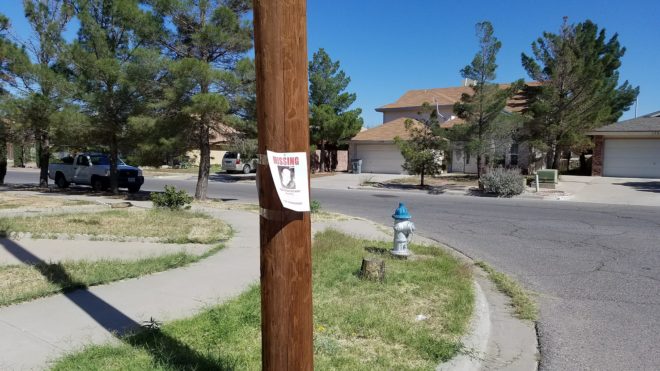Podcast Spotlight: Missing Minority Project Podcast

True crime podcasts aren’t necessarily new, in fact, earlier we grouped our favorite (at that time) true crime podcasts. That said, their popularity seems unwavering. In our 2017 Discover Pods Awards, true crime as a genre won 8/17 categories. Because of the competition, it’s easy to get lost in the crowd and as a result only the best of the best rise to the top. The Missing Minority Project Podcast deserves your attention in the shortlist of podcasts you should pay attention to. Not only is it an excellent true crime (ish) podcast, but they’re also advocates for a good cause — bringing much-needed attention to crimes against people of color and LGBTQ.
I used the term “ish” in the above paragraph because I think it’s a little unfair to bottle the Missing Minority Project Podcast into a relatively narrow category. Because of the advocacy angle to the podcast, they’re much more than just creatively telling the story of a particular crime.
I got the opportunity to meet Lee Eleanor, co-host of the Missing Minority Project Podcast, to discuss the podcast, their advocacy efforts, and the challenges of being an indie podcaster. See below for the full Q&A.
Listen: iTunes
Discover Pods: What’s your podcast about?
Lee: We are a new true crime pod that covers the disappearances of persons of color and LGBTQ persons.
DP: The true crime genre still seems to be the most popular out there. How do you try to separate yourself from the crowd?
Lee: We are a true crime podcast in the sense that most of our cases involve suspicious circumstances, nefarious actors and unsolved cases. However, we also think of ourselves as advocates for the missing. Our ultimate goal is to give our listeners information so that they can share the stories or take action themselves by calling their elected officials, passing out fliers, or getting involved in other ways.
DP: Focusing on minority victims, an underrepresented group, is a noble cause. Why did you decide to specifically focus on minorities?
Lee: Jaliek Rainwalker was the impetus for our podcast. His disappearance haunted both of us and in March 2017, we learned there might finally be resolution in his case — but there wasn’t. We really wanted to keep his name out there and so the idea of a podcast was born. Covering other missing minorities was a natural extension of that idea. We learned very quickly that the coverage in Jaliek’s case was robust compared to some of the others we are researching. Although it’s sad, it validates our mission every day.
DP: What’s something an everyday listener of yours likely doesn’t know about your or the podcast?
Lee: We really view this as a project and not just a podcast. We compile case information on our website and are constantly looking for ways to get these cases more in-depth coverage. We can’t solve these cases, but there’s a good chance that someone out there has that little piece of information that can.
DP: What’s the biggest challenge you face as an indie podcaster?
Lee: I would say editing, but we outsource that now. Probably marketing and branding. We didn’t know a lot about that going in and it’s been a real challenge especially since we straddle a few niches.
DP: What are your top five favorite podcasts?
Lee: That’s such a hard one!
1. Texas True Terrors is my binge of the moment. The hosts discuss movies and the true crimes they were based on. The research is impeccable and it’s a new approach to true crime.
2. Cold Traces – the host works really hard to bring her audiences new details on cold cases. Each season covers one case.
3. The Nowhere Dispatch covers a variety of really creepy stories from the East Texas region. I love the narrator.
4. True Crime Story Time brings you true crime in a storybook format. It’s respectful and extremely well done.
5. Southern Fried True Crime – I can’t say enough about this pod. The cases are usually new to me and I admire the host’s tenacity.
DP: Anything else you’d like to add?
Lee: We are still looking for LGBTQ cases to cover. We haven’t covered one yet despite a lot of researching. If you have case suggestions, e-mail missingminorityproject@gmail.com.













Comments
Comments are closed.